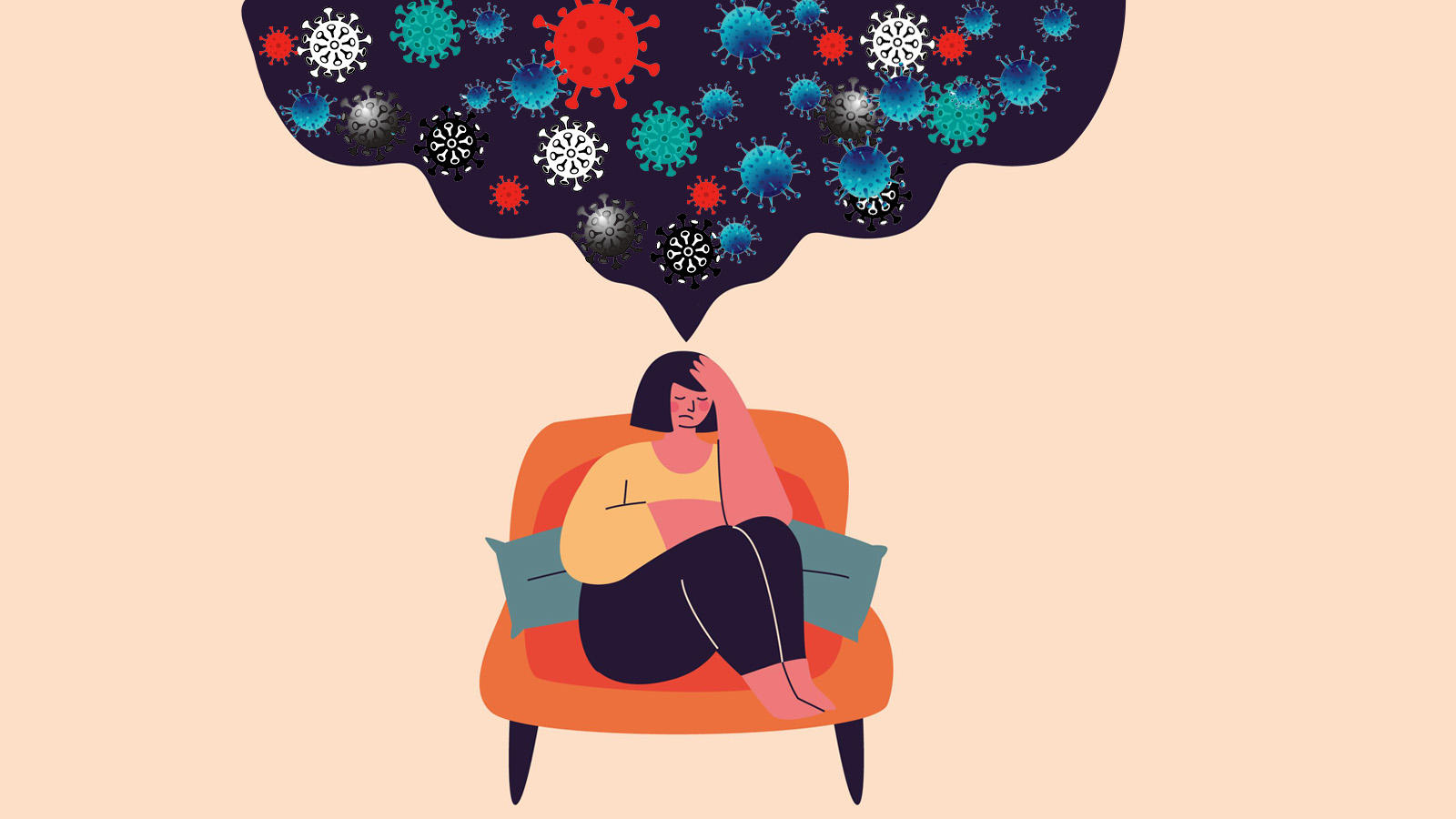Covid-19 Effect on Mental Health: An Uphill Battle Turned Taxing
By: Nandini Gupta

Covid-19 Effect on Mental Health: It’s Here for the Long Run
The pandemic has taken a toll on everything, even on students’ mental health.
Reports from the U.S. Centers for Disease Control and Prevention show a 24 per cent increase in children aged between 5 and 11 years old visiting the emergency department due to a mental health crisis. The number increased by 31 per cent in 12- to 17-year-olds.
As more and more countries open up and society goes back to the old “normal,” individuals are looking forward to a brighter future, with experiences not stained with the pain and feeling of loss that the pandemic made them feel. But, for many, victory seems far away.
Many experts believe that Covid-19’s effect on mental health will be visible for years to come.
Sara Gorman, the research and knowledge director of the JED Foundation, a nonprofit organization that works with high school and college students on mental health issues, believes, “We obviously won’t know what the full impact of this is for many years, which is one of the reasons why schools need to be prepared to deal with this in a very comprehensive and long-term way.”
Many students face anxiety in maintaining their academic grades and building a strong portfolio for college applications. The pandemic has only added to this constant feeling of stress and pressure. Coping with the pandemic will be critical to keeping students focused.

Covid-19 Effect on Mental Health: Access to Mental Health Programs
Keeping students focused poses yet another challenge. 64 per cent or more of students of colour were reliant on remote classes as their sole learning method. On the other hand, only 41 per cent of white students were attending remote classes. Research shows that students in remote learning faced more problems in comparison to those who had access to some sort of social interaction.
Patricia Perez, a child development specialist and an associate professor of psychology at The Chicago School of Professional Psychology, noticed the difference in students’ behaviour since the start of online learning. “He’s not motivated anymore,” says Perez. “Young people like to make plans for the future, and it’s difficult to do that when they don’t know how long this new way of life will last.”
Research shows that a school environment is essential for academic success and social development. Many schools even rely on mental health care. However, access to mental health programs isn’t in the cards for everyone.
Covid-19’s effect on mental health has made many vulnerable communities fight harder. Low-income students attending school have a significantly less chance of participating in mental health programs due to their lack of availability. Communities of colour face the same problem, which doesn’t make things a piece of cake for them.
“We have to be careful and acknowledge just how big a change this has been for kids and families,” notes Beth Doll, a professor of educational psychology at the University of Nebraska-Lincoln. “We have taken away the context that supports their engagement in school and their overall well-being, plus they are dealing with the tremendous uncertainty about the future.”

Covid-19 Effect on Mental Health: A Surge in Substance Use
Covid-19’s effect on mental health doesn’t stop with depression and anxiety. Substance use is also on the rise. 25 per cent of young adults reported starting or increasing substance use during the pandemic, compared to 13 per cent in adults. Suicidal ideation also escalated, with 26 per cent of young adults reporting serious thoughts of suicide, compared to 11 per cent in adults.
Although young adults were already placed at a high risk of poor mental health prior to the pandemic, many didn’t receive treatments. This made matters worse for them in the wake of the pandemic.
Substance use can accelerate poor health outcomes and lead to worse behaviour during adulthood. Dr Andrea Raby at Bayless Integrated Healthcare believes that young adults are the most vulnerable group when it comes to substance use.
A Dutch study notes that while effects of emotional problems decrease over time, effects of alcohol usage remain. For this study, previous disasters were taken as examples. For instance, in the aftermath of Hurricane Katrina, “survivors were smoking cigarettes, consuming alcohol, and experiencing alcohol consumption-related problems at a substantially higher rate.”
This poses another problem. When someone doesn’t get access to their regular drug, they look for other, often more dangerous options. If heroin isn’t available, young adults will look for fentanyl, which is stronger.
“People are more stressed and isolated, sot they make unhealthy decisions, including drinking more and taking drugs,” says William Stoops, professor of behavioural science, psychiatry, and psychology at the University of Kentucky. “There’s also a stigma around substance use disorder that keeps people away from treatment, and even more so during a pandemic.”

Covid-19 Effect on Mental Health: The Light at the End of the Tunnel
Covid-19’s effect on mental health has been drastic. While the light at the end of the tunnel might seem far away, there is definitely hope. Prioritizing students’ mental health is key. While having conversations with professionals is important, opening up to friends and family can do wonders, too.
The American Psychological Association believes having a strong network of individuals students can turn to is beneficial. So is students working towards their goals by taking small steps. This will make them feel that they’re in control of everything happening around them, which is often reassuring. Developing self-confidence will convince students that they can strongly face hurdles in the future. Building good habits, including exercising, eating nourishing meals, and sleeping adequately, will provide a solid foundation for carrying on the other tasks of the day with minimal trouble.
“Faculty needs to be flexible with deadlines and remind students that their talent is not solely demonstrated by their ability to get a top grade during one challenging semester,” recommends Sarah Ketchen Lipson, an assistant professor of health law, policy, and management at Boston University. “Even in larger classes, where 1:1 outreach is more difficult, instructors can send class-wide emails reinforcing the idea that they care about their students not just as learners but as people, and circulating information about campus resources for mental health and wellness.”
Lipson believes that students are more critical of themselves than they are of others. But that shouldn’t be the case. She urges students to avoid self-deprecation and wants them to believe that the people around them are not judging them.
While the wait might seem long, there are ways to protect and prioritize students’ mental health. If society comes together to strengthen the youth, society as a whole can grow. After all, the wait doesn’t have to be that long.
Works Cited:
Abramson, Ashley. “Substance Use during the Pandemic.” Monitor on Psychology, American Psychological Association, 1 Mar. 2021: https://bit.ly/3ilVtaI
Ingoglia, Chuck. “COVID-19 and Youth SUBSTANCE Use: We Need More than Good Intentions.” The Journal of Behavioral Health Services & Research, Springer US, Jan. 2021: https://bit.ly/3xgTtVr
Krislov, Marvin. “I’m Worried about Student Mental Health Post-Pandemic-Here’s How We Can Help.” Forbes, Forbes Magazine, 26 May 2021: https://bit.ly/3C69H7r
Mcalpine, Kat J. “Depression, Anxiety, Loneliness Are Peaking in College Students.” Boston University, 17 Feb. 2021: https://bit.ly/3A1cc8Y
Panchal, Nirmita, et al. “The Implications of Covid-19 for Mental Health and Substance Use.” KFF, 10 Feb. 2021: https://bit.ly/3iiEpCe
Sparks, Sarah D. “Data: What We Know about Student Mental Health and the Pandemic.” Education Week, Education Week, 31 Mar. 2021: https://bit.ly/3yqNFdd
Stringer Heather. “Zoom School’s Mental Health Toll on Kids.” American Psychological Association, American Psychological Association, 13 Oct. 2020: https://bit.ly/3ytiDBG
Similar Posts –
PRIORITIZATION OF MENTAL HEALTH AT TOKYO OLYMPICS: Click here to read the full article.
ANXIETY DISORDERS AFFECTING TEENS AND YOUNG ADULTS: Click here to read the full article.
Tags: Anxiety, Anxiety Disorders Affecting Teens and Young Adults, Anxiety in teens, Anxiety in young adults, Covid-19, depression, Mental Health, mental health programs, pandemic, substance use, youth mental health,










[…] EFFECT ON MENTAL HEALTH: AN UPHILL BATTLE TURNED TAXING. Click here to read the full […]
[…] EFFECT ON MENTAL HEALTH: AN UPHILL BATTLE TURNED TAXING. Click here to read the full […]
[…] awareness about mental health is an ongoing process and is yet to create major changes. The ongoing pandemic has not only increased physical illnesses but has also affected the mental health of […]
[…] year than other companies. That was mainly because of their special conditions and vulnerability to Covid-19 challenges. In this article, we will try to explain how and why business start-ups amidst COVID-19 strive to […]
[…] Covid-19 was one of the most unanticipated and horrific disasters we’ve seen this century. A crumbling economy, along with a lack of infrastructure in health and safety also limited our capability to respond adeptly to the disaster. To top it all India faced the migrant labour crisis in 2020 with thousands of workers losing their lives due to hunger, poverty, and finally…the virus itself. […]